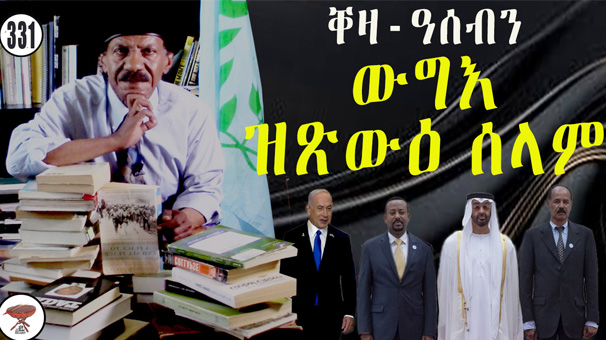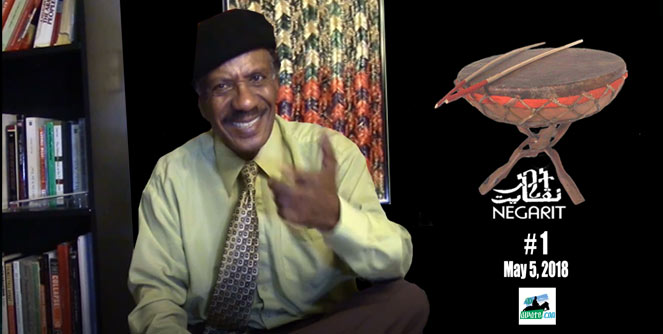Gaza Asab: A Peace to Start More Wars
For decades—especially in the last three years—Eritreans and Ethiopians have lived under a cloud of anxiety. Threats of aggression, violence, and hardship have become the region’s norm, particularly since Abiy Ahmed launched his campaign to secure sea access through Eritrean territory.
Ports are traditionally built to host ships that encourage trade. But Abiy envisions a port to launch his navy and battleships. Eritreans, however, have no interest in hosting a port they can’t benefit from—especially if it won’t serve neighboring countries. But in Abyssinia, where the warrior tradition still dominates, the go-to solution remains invasion. Abiy Ahmed is the latest heir to this destructive legacy.
After the Tigray War, I revisited many books to get a fresh historical perspective. Some I had read a decade ago, but one stood out and inspired today’s commentary:
The Fall of the Ottoman Empire and the Creation of the Modern Middle East
A Peace to End All Peace, published in 1989, David Fromkin’s book provides a sharp historical analysis of how the post-WWI carve-up of the Ottoman Empire gave birth to the modern Middle East—and laid the foundations for a century of conflict. Fromkin’s focus is the chaotic years between 1914 and 1922, when European powers—chiefly Britain and France—hastily and selfishly redrew borders, creating artificial states that continue to implode.
Politicians today have not learned from these lessons. Instead, they worsen the situation. Abiy’s reckless port ambition, for example, is one such act that endangers regional stability.
The “Sick Man of Europe” and His Legacy
At the dawn of the 20th century, the Ottoman Empire—once a sprawling power—was derisively called “the sick man of Europe.” Yet it still controlled vast lands: present-day Turkey, Syria, Iraq, Palestine, Jordan, Saudi Arabia, parts of North Africa, and even Eastern Europe.
Internally, it was a patchwork of local rulers, religious elites, and tribal coalitions—a decentralized system that held for centuries. But European powers had their eyes on Ottoman holdings. Britain, focused on its route to India via the Suez Canal, coveted Egypt and the Gulf. Russia desired warm-water ports, and France had cultural interests in Lebanon and Syria.
Today, Abiy Ahmed mirrors that fragile decline—a modern “sick man of the Horn of Africa.” Ironically, he’s provoking the aging ruler of Eritrea, a move with ominous echoes of past blunders.
Britain’s Contradictions During WWI
During World War I, the Ottoman Empire sided with the Central Powers, prompting Britain and France to plan its dismantlement. Fromkin emphasizes the contradictory promises Britain made during this period:
- To the Arabs: The Hussein-McMahon Correspondence (1915–16) promised Arab independence if they revolted against the Ottomans.
- To the French: The secret Sykes-Picot Agreement (1916) divided Ottoman lands into British and French zones—contradicting the promises to the Arabs.
- To the Zionists: The 1917 Balfour Declaration promised a Jewish homeland in Palestine, where Palestinians already lived.
These conflicting commitments sowed seeds of future unrest. Fromkin shows how British officials, driven by imperial hubris, ignored the region’s complexity.
Golda Meir, Israel’s Prime Minister in 1969, once declared in an interview, “I am a Palestinian—from 1921 to 1948.” Born in Ukraine, she had moved to British-controlled Palestine and held a Palestinian passport. This fact is now controversial, though it shouldn’t be.
Post-Ottoman Aftermath
The Ottoman Empire officially ended with the 1920 Treaty of Sèvres, though resistance led by Mustafa Kemal Atatürk forced a revision in the 1923 Treaty of Lausanne, which created modern Turkey.
Britain and France assumed mandates over much of the Arab world under the guise of preparing nations for self-rule. In truth, these were colonial occupations. Britain ruled Iraq, Jordan, and Palestine; France took Syria and Lebanon.
New states like Iraq were patchworks of Sunnis, Shiites, and Kurds—held together by puppet monarchs like King Faisal and King Abdullah, chosen by the British. These artificially constructed nations had no organic legitimacy. They were doomed to become fragile, unstable entities.
The Legacy of Broken Peace
Fromkin’s title is a twist on Woodrow Wilson’s claim that WWI was “the war to end all wars.” Instead, it brought a peace that ensured endless conflict. The poorly conceived postwar arrangements created fake states, betrayed entire peoples, and ignited conflicts still raging today—from Israel-Palestine to Syria and Iraq.
These disasters were not inevitable. They stemmed from short-sighted choices by imperial figures like Mark Sykes, Sir Henry McMahon, and T.E. Lawrence—men who failed to understand the region’s dynamics.
Fromkin is both critical and vivid. He blends scholarly insight with human stories, showing how ignorance and improvisation reshaped entire nations. Even celebrated figures like Lawrence of Arabia are unmasked as cogs in an imperial machine.
“Gez’at Turki”—Turkish Rule Remembered
Fromkin’s account reveals how a moment of empire’s fall gave birth to illusions of independence. Instead, it merely traded Ottoman rule for European manipulation—ushering in chaos masked as nation-building.
His thesis is clear: the peace settlements were not evolution but construction—clumsy, imperial, and enduringly disruptive. We live with their consequences today.
Conclusion: Horn of Africa’s Gallipoli?
Abiy Ahmed’s maneuvers in the Horn mirror the tragic ambitions of old empires. His obsession with Assab may become a regional Gallipoli—an ill-conceived campaign with disastrous consequences. Instead of learning from history, he seems poised to repeat it.



Awate Forum